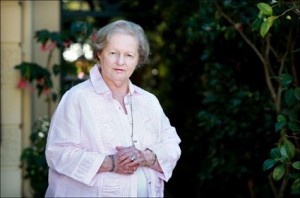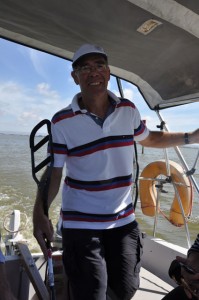No Complacency About Cancer Screenings
Renowned healthcare advocate, Dr Judith Roberts, has warned that any Federal Government funding cuts to cancer screening programs would result in rising death rates from the dreaded disease.
Dr Roberts, a former president of Cancer Council Australia and chair of Cancer Council SA, says the community needs to be reassured that life-saving screenings for breast cancer, cervical cancer and bowel cancer are not in the Government’s sites for cuts in the May budget.
“My big worry is that the Federal Government in a parlous state with their budget that they will cut funding to the screening programs,’’ said Dr Roberts, who is the Community Patron of the Cancer Council of SA.
“Presently funding is shared between the Federal and State governments and if the Federal Government tries to handball its share, the states will be unable to take up the gap in funding.
“It will be a disaster for the screening programs, for cervical cancer, breast cancer and bowel cancer screening – and bowel cancer screening is under the greatest threat,’’ she added.
The Governor General, Her Excellency Quentin Bryce flew to Adelaide late last month to present Dr Roberts with the Cancer Council Australia’s prestigious Gold Medal for being “an icon of healthcare advocacy’’.
She was the first recipient of the award outside the field of clinical medicine.
Dr Roberts has devoted “decades of personal advocacy’’ as a volunteer to improved cancer outcomes , Her Excellency Quentin Bryce said on presenting the medal.
She was the driving force in the establishment and implementation of screening programs for breast and cervical cancer in South Australia, then nationally. The two women’s cancer screening programs have prevented thousands of cancer deaths in Australia.
Dr Roberts chaired a Ministerial Task Force on cancer in women under former minister for health, Dr John Cornwall during the Bannon years and travelled to 10 countries afterwards to study the impact of breast screening programs.
Her report was accepted by the SA Government and she then chaired the Ministerial committee which set up the SA Mammography screening program.
“I was the mother of the breast screen program, but now I am the ‘grandmother’,’’ said Dr Roberts.
She also chaired the Ministerial Advisory Committee into cervical cancer screening and steered its implementation in SA and then nationally.
Following her ground-breaking recommendations Dr Roberts worked for 40 years as a volunteer to improve community awareness of early detection through screenings,
“These screening programs have saved thousands of women’s lives,’’ she said. “They have reduced the death rate from breast cancer by a third.’’
But, Dr Roberts said there was no room for complacency, despite the high numbers of women over 50 who have regular mammograms.
“We have to keep the pressure up because Federal Government changes are always possible because of budgetry pressures,’’ she said.
“This is a fiscally desperate government; who knows whether they will home in on the screening programs to save money.
“Funding is shared between State and Federal governments.’’
She said the bowel screening was not being taken up in large enough numbers by the community even though it was free and had the potential to save “countless lives’’.
Dr Roberts said more funding was needed for wider promotion of the free bowel screening program to entice most Australian men and women aged over 50 to take up the free program.
At the recent medal presentation, Cancer Council Australia CEO Professor Ian Olver said Dr Roberts had been president from 2004-07, when she built the capacity of the organisation to develop and promote evidence-based cancer control policy.
Under separate article : CANCER SCREENING FACTS:

